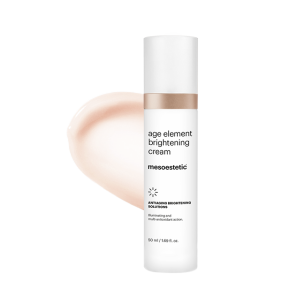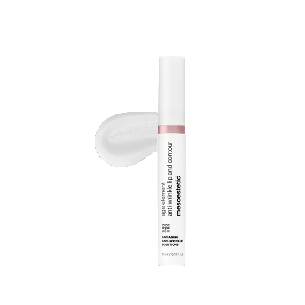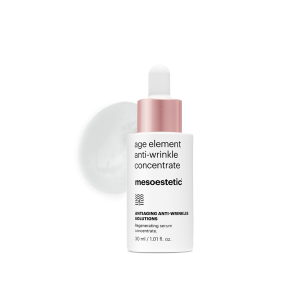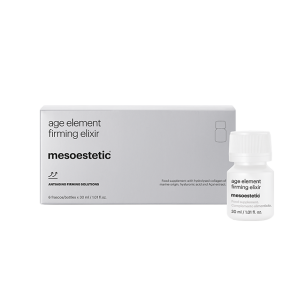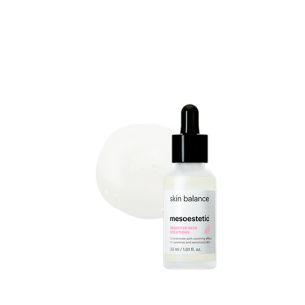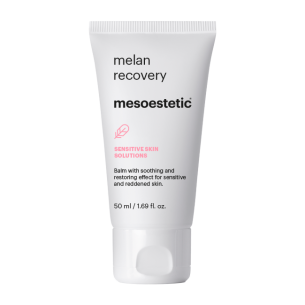Peptides are powerful allies in cosmetics and aesthetics. Read on to find out how you can unleash their potent potential.

No doubt you’ve already heard of peptides and know they’re a key ingredient in skincare and anti-ageing treatments. But that little term - peptide - is still shrouded in mystery and brimming with unknowns.
It’s a huge field, and one that’s still being discovered. And you need to know about it. We’re here to take away the mystery and tell you all about peptides: what they are, what they do, and why the benefits make them a valuable tool in a range of cosmetics and treatments.
What are peptides?
Peptides are molecules consisting of short chains of amino acids (between 2 and 50 to be more precise). Put simply, they’re a fundamental building block of cells, and power up a huge range of essential biological functions.
You could think of peptides as the cousins of proteins. Similar, but different due to their size, structure and function.
- Size matters. Peptides with chains of 2 to 20 amino acids are known as oligopeptides (and these are the ones we’re talking about). Chains of 21 to 50 are called polypeptides, and are essentially ‘pieces’ of protein (51 to 100 amino acids).
- In terms of structure, they're less defined than proteins, and have the potential to create complex formations (secondary, tertiary and quaternary, etc).
- And now for the functions.Too many to list! Suffice to say, peptides play a key role in regulating the activity of other molecules.
There are a vast number of peptides out there. To give you an idea, let’s think about all the potential combinations of the twenty essential amino acids. A lot. And it’s not just the combinations with two amino acids (or ‘dipeptides’). There are also tripeptides, tetrapeptide, pentapeptides and so on.
Peptides have a huge scope of biochemical and medical functions and applications:
- They’re a structural element and precursor of proteins
- They're building blocks for alkaloids;
- They come with antibacterial properties
- They can act like hormones
- They act as growth factors
- They're antioxidants, trapping free radicals
- They can help with clinical diagnoses
Let’s take a close look at how they work in skincare and cosmetics.
What are peptides used for in cosmetics?
Peptides activate stem cells. In turn, these cells then divide to create more stem cells (this process is called self-renewal) or specialist cells - like cutaneous cells for example (a process known as differentiation). Naturally over time, stem cells lose this capacity.
When cellular division is triggered in stem cells, peptides power the production of new cutaneous cells like fibroblasts and keratinocytes. This facilitates the regeneration of skin tissue, making it stronger, firmer and healthier.
Types of peptides
From this perspective, there are three types of peptides, classified according to the role they play in skin health:
- Carrier peptides encourage enzyme synthesis in metabolic processes like collagen production, delivering essential trace metal elements.
- Signal peptides stimulate the collagen, elastin and hyaluronic acid production via fibroblasts.
- Inhibitor peptides inhibit the release of the neurotransmitters responsible for muscle strain and, indirectly, wrinkles.
And this is precisely why peptides have become a force to be reckoned with in high-tech cosmetics in recent years. Ready to go deeper still?
How are peptides used in cosmetic treatments?
As you’ll have gathered by now, peptides can help regenerate the skin at the cellular level - making it healthier AND improving the look (making it firmer and more taut, softening laughter lines and wrinkles), as well as hydrating and soothing. Two secret weapons come in here.
First, peptides’capacity to target a specific action; in other words, each peptide has its own features and functions. Second, their unrivalled capacity to penetrate the skin, thanks to their small size. In terms of proteins, the latter is the key factor which has propelled peptides to be the undisputed stars of topical cosmetic treatments.
And it doesn’t stop there. We’re now starting to see cutting-edge advances in the intradermal application of peptides, harnessing and maximising the impact of all these types of peptides. Solid research is of course essential, and there’s a need for further R&D innovations as well as medical and pharmacological guidelines.
Peptides in mesoestetic® aesthetic solutions
Peptides make an appearance across the full range of anti-ageing formulations age element® by mesoestetic® including sensitive skin solutions (sensitive skin solutions), all for topical use: creams, eye contour products, serums, concentrates, masks, balms and even nutritional supplements.
But they're also included in the composition of professional intradermal treatments such as our mesohyal™ line.
age element® range
Discover our age element® range, an intensive treatment to combat all the signs of ageing which contains peptides in all formulations.

